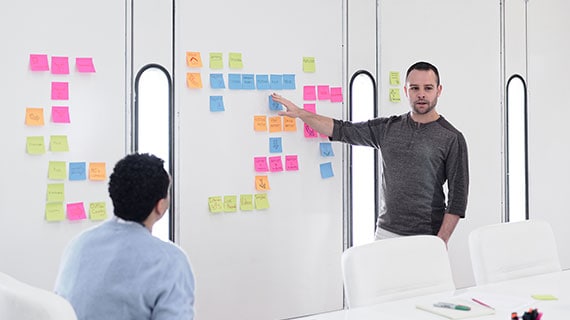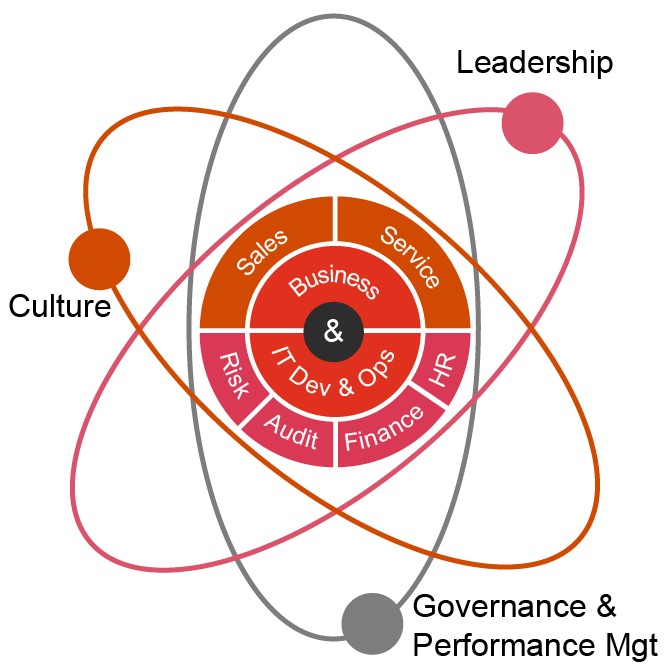Agile Target Operating Model (ATOM)
Agility is today’s challenge for every company
Constantly changing market conditions make it essential for companies to become more agile, enabling them to:
- Swiftly introduce innovations and ensure a customer-centric approach
- Have an effective and flexible organisation
- Be seen and experienced as a great place to work.
The successful companies of the future will likely be those which can adapt and change quickly, learn rapidly and embrace dynamic career demands. This means they need to be able to reinvent their existing organisation and transition towards a more Agile Target Operating Model (ATOM).
Instead of traditional hierarchies, companies will in the future have to function like a network of empowered, autonomous and strategically aligned teams who collectively turn purpose into practice. These high performing teams are the smallest unit within an organisation and should be seen as building blocks with the capability to deliver value for the company as a whole.
Don’t let an agile way of working be a goal in itself – see it as the means to achieve your strategic goals. There is no such thing as a standardised approach or method to becoming an agile enterprise. Every transformation has to be tailor-made, with different approaches required even within the individual parts of a company. An agile culture fosters continuous learning by failure in a transparent, empowering and safe environment.

The Agile Target Operating Model (ATOM)

This new reality means that companies need to continuously reinvent themselves
Ongoing innovation is crucial if companies are to offer unique customer experiences in the same way as best-in class digital firms like Uber and Spotify. It requires extending your ecosystem and partnerships to all the platforms where customers expect you to be. Change the operating model to become more agile and respond faster to changes while lowering costs and risk. Build a strong corporate culture that not only inspires, but also restores trust by embedding regulatory requirements into core processes.
How to become an agile enterprise?
As the agile goals differ per company, so too does the journey to attain them well. PwC can support you on this journey with our PwC Enterprise Agility Guide, a tailored roadmap to becoming an agile enterprise.
Contact us

Pieter Koene
Customer Practice Leader Financial Services, PwC Netherlands
Tel: +31 (0)62 290 97 72















